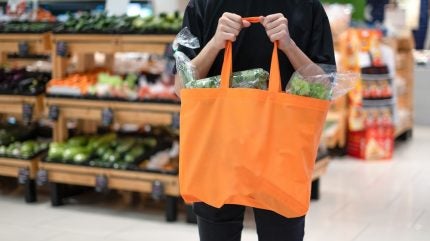
The retail industry is undergoing a significant transformation as companies shift towards sustainable practices.
One of the most prominent trends is the adoption of reusable packaging, a move driven by the need to reduce environmental impact and meet the demands of increasingly eco-conscious consumers.
Retail giants around the world are leading this change, investing heavily in innovative solutions that prioritise sustainability without compromising on convenience or cost-effectiveness.
The push for sustainability
Sustainability has become more than just a buzzword in the retail industry; it is now a key driver of business strategies.
With mounting pressure from governments, environmental organisations, and consumers, companies are reevaluating their packaging choices. Single-use packaging, once the norm, is now seen as a significant contributor to global waste and pollution problems.
This has prompted a growing number of retailers to explore reusable packaging options as part of their sustainability efforts.

US Tariffs are shifting - will you react or anticipate?
Don’t let policy changes catch you off guard. Stay proactive with real-time data and expert analysis.
By GlobalDataReusable packaging, unlike its single-use counterpart, is designed to be used multiple times before being recycled or disposed of. This reduces the need for constant production of new packaging materials, leading to a significant decrease in resource consumption and waste generation.
For retailers, this not only aligns with sustainability goals but also offers potential cost savings in the long term.
Innovations in reusable packaging
The shift towards reusable packaging has spurred a wave of innovation in the retail sector. Companies are experimenting with various materials and designs to create packaging that is durable, attractive, and functional.
For instance, some retailers have introduced reusable bags and containers made from recycled plastics, biodegradable materials, or even plant-based alternatives. These products are not only environmentally friendly but also meet the practical needs of both consumers and retailers.
One notable example is the introduction of reusable shopping bags made from recycled PET bottles.
These bags are not only durable and waterproof but also contribute to the circular economy by giving new life to discarded materials. Similarly, some retailers are offering reusable containers for products like detergents, cereals, and beverages, allowing customers to refill their containers at in-store stations.
This approach reduces packaging waste and encourages customers to make more sustainable choices.
Moreover, advancements in technology are playing a crucial role in the development of reusable packaging solutions. Smart packaging, which incorporates digital features such as QR codes or RFID tags, is being used to enhance the customer experience.
These technologies allow consumers to track the lifecycle of their packaging, ensuring that it is being reused and recycled effectively. Retailers can also use this data to optimise their supply chains and reduce waste further.
Consumer response to reusable packaging
Consumer acceptance is critical to the success of reusable packaging initiatives. Fortunately, there is growing evidence that shoppers are increasingly willing to embrace these new options.
A study conducted by the UK’s Department for Environment, Food & Rural Affairs (DEFRA) found that a significant proportion of consumers are concerned about packaging waste and are actively seeking out products with minimal or reusable packaging.
Retailers have responded to this demand by offering incentives for customers who choose reusable packaging. For example, some supermarkets offer discounts to shoppers who bring their own bags or containers, while others have implemented deposit return schemes for reusable packaging.
These initiatives not only encourage sustainable behaviour but also foster customer loyalty.
However, challenges remain in convincing the broader population to make the switch to reusable packaging. Convenience and cost are significant factors that influence consumer behaviour.
Retailers must strike a balance between offering affordable, convenient options and promoting sustainability.
Education and awareness campaigns are essential in helping consumers understand the environmental benefits of reusable packaging and encouraging them to adopt more sustainable habits.
The future of reusable packaging in retail
As the retail industry continues to evolve, the role of reusable packaging is set to become even more prominent. Retail giants are not only adopting these practices internally but are also advocating for broader industry change.
Collaborations between retailers, packaging manufacturers, and government bodies are emerging as a key strategy for driving the adoption of reusable packaging on a larger scale.
For instance, some retailers are partnering with packaging companies to develop standardised reusable packaging systems that can be shared across different brands and stores.
This approach not only simplifies the process for consumers but also reduces the overall environmental impact of packaging production and disposal. Additionally, governments are introducing regulations that encourage or mandate the use of reusable packaging, further accelerating this shift.
In conclusion, the move towards reusable packaging represents a significant step forward in the retail industry’s sustainability journey. While challenges remain, the potential benefits for both the environment and businesses are immense.
By investing in innovative solutions and working together to promote sustainable practices, retailers can lead the way in creating a more circular economy.
For packaging professionals, this trend presents both challenges and opportunities, as they play a crucial role in developing and implementing the packaging solutions of the future.
As consumer expectations continue to evolve, and environmental concerns become more pressing, the retail industry’s commitment to reusable packaging is likely to strengthen.
This shift not only reflects a growing awareness of the need for sustainable practices but also highlights the potential for innovation and collaboration in addressing one of the most significant environmental challenges of our time.



